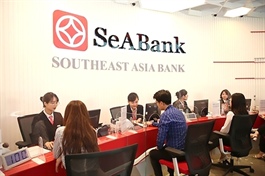Tight outlook with new offshore borrowing rules
Tight outlook with new offshore borrowing rules
On June 30, the State Bank of Vietnam (SBV), in an effort to address loopholes in previous regulations and offer a more comprehensive framework for non-government guaranteed offshore borrowing, issued Circular No.08/2023/TT-NHNN to replace Circular No.12/2014/TT-NHNN from August 15. Circular 08 has been adopted with significant changes compared to Circular 12.
In comparison to the current regulations, Circular 08 appears to tighten the purpose of foreign loans.
With respect to short-term loans, while Circular 12 only stipulates that borrowers cannot utilise short-term loans for mid- or long-term purposes, under Circular 08, the borrower may now utilise short-term loans for certain purposes only. The permissible purposes include refinancing of foreign loans and repayment of short-term debts payable in cash (excluding principals of onshore loans) arising during the course of its implementation of investment projects, production and/or business plans, or its other projects and determined in accordance with the then applicable accounting regulations.
Hence, Circular 08 has confined the range of what may be regarded as legitimate purposes for short-term foreign loans. Notably, it seemingly gives a green light for the utilisation of short-term foreign loans to refinance all existing foreign loans of the borrower, regardless of whether such existing foreign loans are short-term or mid- or long-term foreign loans. Also, it seems that the utilisation of short-term foreign loans to repay interest of onshore loans is not prohibited.
Although short-term foreign loans are still not required to be registered with the SBV, the borrower is now required to prepare and maintain a list identifying the purposes for utilisation of foreign short-term loans on the basis of its payable estimate during the term of the loans for the SBV’s investigation from time to time.
With respect to mid- and long-term loans, under Circular 08, the borrower may obtain a mid- or long-term foreign loan to implement its investment project, implement its production and/or business plan, or its other projects or refinance its foreign loans. As such, the previous permissible loan purpose of implementing projects of a company to which the borrower contributes direct investment capital has now been eliminated from Circular 08.
To put it another way, Circular 08 prohibits the parent company from obtaining foreign loans to finance a project undertaken by its subsidiary.
Circular 08 is still silent on whether a foreign loan may be granted for the borrower to contribute or purchase capital contributions or shares. Hence, it is still questionable and subject to the consideration of the SBV on whether those activities should be interpreted to fall under the purview of the borrower’s investment project or other initiative.
Pursuant to Circular 12, refinancing purposes tie in with the condition that the borrowing cost of the new loan should not be higher than the borrowing cost of the existing loan. Circular 08 has now removed such conditions to leave more room for the borrower to better structure its repayment plan from time to time.
On a side note, while Circular 12 provided no specific limitation on loan limit for refinancing purpose, under Circular 08, the loan limit for refinancing purpose should not exceed the outstanding principal, interest, or unpaid fee of an existing loan plus fee of new loan (if any) at the time of refinancing. If the new loan is mid- or long-term loan, the borrower must repay its existing loan within five working days from the new loan’s utilisation date to ensure that the borrowing limit of the existing loan remains in compliance at the end of such 5-working-day period.
Under Circular 08, idle funds that have been utilised but have not yet been used for borrowing purposes are now permitted to be deposited at credit institutions and foreign bank branches operating in Vietnam, and the borrower is required to prepare and/or present a monitoring sheet of deposited idle funds in this case.
The circular also places a cap on the maximum duration of one month for each deposit term to avoid the scenario where the borrower hoards idle funds for a prolonged period of time in order to benefit from a higher deposit interest rate, which should not be the original purpose of its offshore borrowing.
Finally, loan agreements that were executed prior to the effective date of Circular 08 are still enforceable in accordance with the laws in effect at the time of execution, and the borrower shall continue to abide by such executed loan agreements as well as any applicable SBV approval until the loan expires. Any amendment and supplement to such loan agreements, however, shall be governed by Circular 08.





















